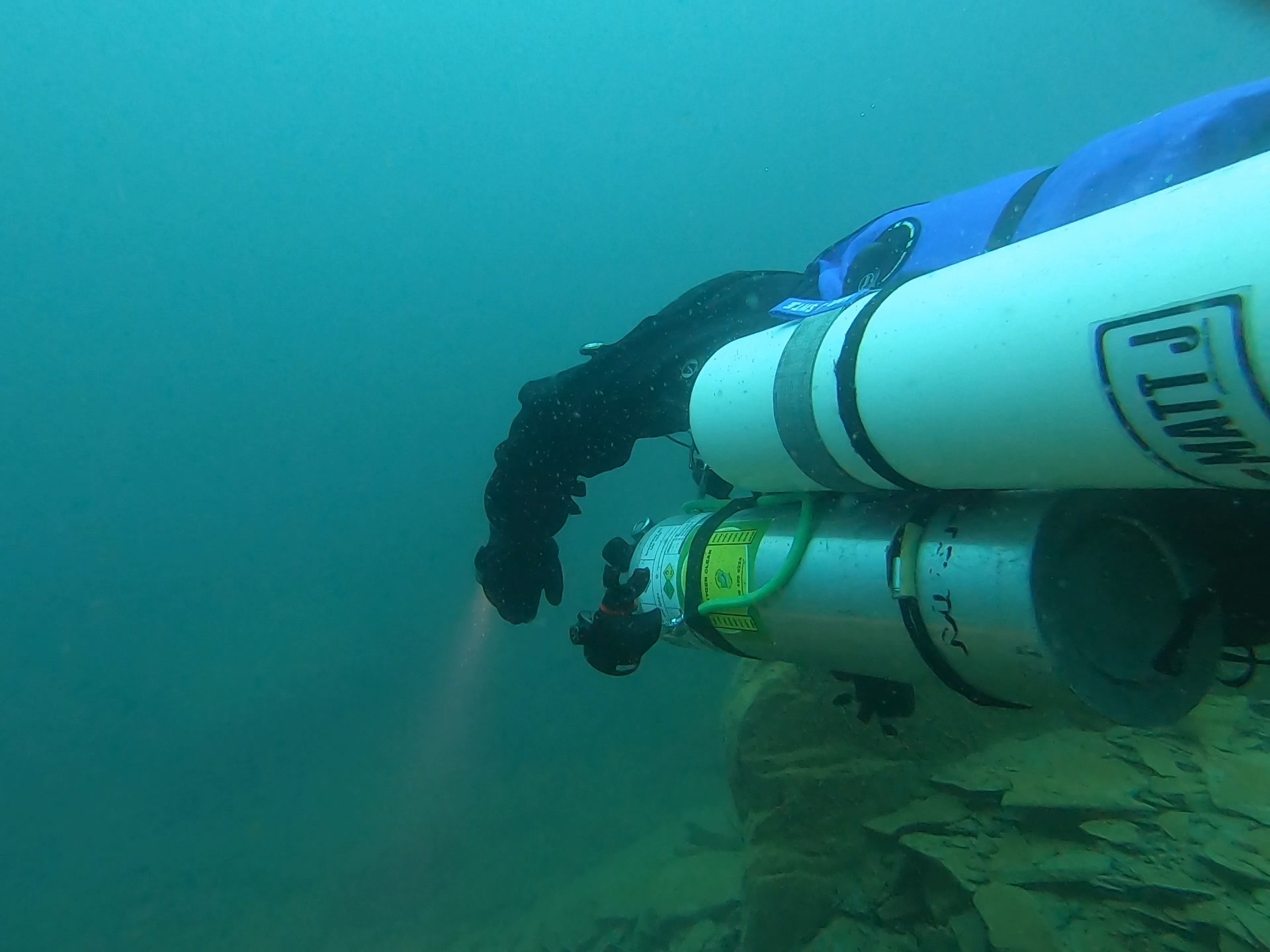[et_pb_section admin_label=”section”][et_pb_row admin_label=”row”][et_pb_column type=”4_4″][et_pb_text admin_label=”Text” background_layout=”light” text_orientation=”left” use_border_color=”off” border_color=”#ffffff” border_style=”solid”]
The Role of Ego in technical (and recreational) diving
I read a blog recently that suggested our egos could be responsible for many of the casualties that technical diving regrettably suffers. Sadly my comments on this blog never made it past the moderator. As a scientist and psychologist I am somewhat protective of terminology used to describe human thought, emotion and behaviour, and the author of this blog fell into a common trap in how they described ego.
Ego simply refers to self and how we feel about ourselves. This results in our thoughts, emotions and behaviour. Where an ego is arrogant, overbearing, misguided or delusional then bad things can and often do happen. However having a big ego isn’t, without a skewed view as above, going to cause any problems, in fact quite the opposite. Let me explain.
Psychological research used to place ego and task focus on a continum, generally to describe motivational style. Educational psychologists as late as the last decade, which is when most diving education systems were thought up, ‘proved’ that in educational settings a task focus was more beneficial. Learners were more motivated by task satisfaction and clarity than by internal or external ego boosting rewards (money, status, etc). The flaw in much of this research is that learners were classified as being either task or ego focussed, there was no delineation of people who were high in both task and ego focus, or in fact low in both and not at all motivated.
My own research and practice, backed by some very good recent research, shows that true high performers in any field are highly motivated by both task and ego focus. Not just to learn but to achieve, or to avoid failure and to maximise their potential. I’m quite sure in work and in diving we can easily describe people we see as being highly motivated and equally people who cannot be motivated even by a good old fashioned kick in the ass!
Now, there’s a kicker….. Both task and ego focus can be internally directed or externally directed. External ego driven people like status, recognition and reward and will enjoy and revel in compliments etc. Internal ego driven people often don’t mind these things, but would not seek them out, their own judgement of self being far more important to the influence on their ego. Evidence used by both internal and externally driven people would be wins v losses, feedback or reflection on skills performed, dives achieved etc.
The bigger the ego, internal or external the better, the higher the level of task focus the better. Having both, awesome. So why did the original blogs author get it wrong….. Because they confused ego with arrogance, ego with overconfidence, ego with a lack of honest appraisal on ones own skills and abilities.
I work a lot with elite and consistently high performing sports and business people. All have high levels of ego or task focus. About a third have a high need to achieve, to experience success. The rest, including me are frightened to death of failing, why? Because we have big egos and lots of confidence, well placed as it happens in our ability. Failing would not only not provide the reward our egos need, it would damage our ego and confidence. So, we are detailed and meticulous in ensuring we won’t fail, we work very hard, past the point where others would have given up, in order not to fail. Hardly the approach of arrogant and overconfident divers at high risk of an incident.
So to the blog authors point, which was of massive value. What is it about our attitude as divers that makes us a danger unto ourselves. Simply put its a matter of perception versus reality. The at risk diver perceives or believes they have the skills, training and experience to do dives that are in reality beyond them. This is arrogance not ego. This is overconfidence, not ego. This is pure self delusion or worse peer pressure.
How do we counter this? We get honest feedback or practice honest self appraisal. We seek out multiple sources of evidence to help with this, instructors, team mates, video, benchmark of dive achieved versus dive plan, and so on. We do not get bullshitted by people telling us we are better this we know we are.
Avoiding being distressed and getting into the panic spiral when failures and negative incidents are experienced on a dive relies on a cool and confident head. A strong and big ego, coupled with great task focus will be a huge asset, and will be the most likely thing to keep you alive.
It’s become a bit anti social in some circles to be see as being super confident, to be see to be having a big ego. I think you can be this way without being an asshole, but if not, well, maybe it’s better to be a live asshole over being a dead nice guy with delusions on their abilities.
Dive safe. Dive confident. Dive honest.
[/et_pb_text][/et_pb_column][/et_pb_row][/et_pb_section]




